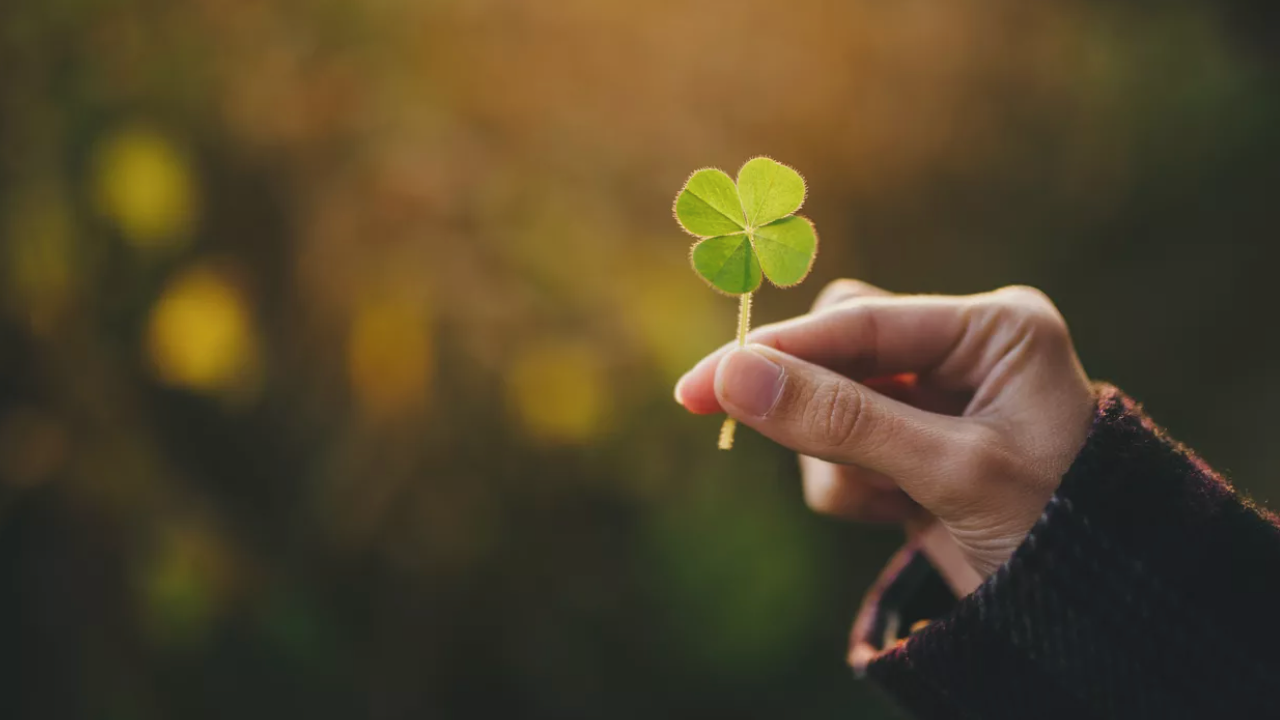The Balance Between Luck and Skill

Sometimes life feels as if it’s a series of events out of your control. No matter how much discipline and order you try to exert, chance happenings, "coincidences", and all the I-was-just-in-the-right-place-at-the-right-times, can alter your path and take you on a road you never thought you'd be on.
The Roman philosopher Seneca is attributed to saying, “Luck is what happens when preparation meets opportunity”. But how does skill factor into it? What is the balance between skill and luck? What other elements go into “luck”?
Maria Konnikova is an international poker champion and holds a Ph.D. in psychology at Columbia University. In her new book, “The Biggest Bluff” she talks about this very thing:
"A few years ago, I went through a period in my life where it seemed like everything that could go wrong did.
Out of nowhere, I came down with an autoimmune disorder that no one could diagnose. My grandmother, totally healthy, slipped on her way to the bathroom, and never woke up. My husband lost his job. My mom lost her job, all in a span of weeks.
We don't really think about the importance of luck in life when things are going our way. But all it takes is a series of events totally outside our control to make it clear just how limited our agency can sometimes be.
So, what should we do? For an answer, I turned to a less-than-traditional teacher, the game of poker. And more than any experience in my life, including my Ph.D. in psychology, it has taught me both the crucial importance of skill and its limits.
Most people assume that poker is luck. It isn't. You can win with the worst hand and lose with the best hand. Remind you of anything? In fact, it turns out the actual best hand wins only some 12 percent of the time. What happens the other 88 percent? The best hand gets outplayed by superior skill.
But the opposite can also be true. You can make the right move, be an absolute favorite to win, and then luck can turn against you. As in life, there is no such thing as complete certainty, because, like life, poker is a game of incomplete information, of unknowns, of constantly changing, endlessly moving parts.
Your job is to decipher the static, to make an informed choice, and to make that choice knowing that the so-called right decision does not guarantee a win. Poker teaches you that the outcome is a result of that balance, the interplay of skill and chance coming together.
If you keep making the right choices, if you keep thinking well and acting thoughtfully, if you keep putting yourself in a position to win, then, eventually, the variance will be on your side.
And when it is on your side, stay humble, and never forget that, in order to win, you don't just have to play well. You also have to get very lucky.”
It's interesting to note that your thoughtful engagement, prepared choices and honing of skills can help your mind shift from closed to open, doubtful to open to possibilities. This same conclusion is voiced by others who've delved into this topic:
“Create Your Own Luck by Changing Your Perspective” Lifehacker
"Be Lucky - it's an easy skill to learn" The Telegraph
“Luck is what happens when preparation meets opportunity” Philosiblog
“Luck is what happens when preparation meets opportunity” Philosiblog
Take a quick read, and you'll see that the big takeaway is that luck is mostly an effect of one's outlook. Our takeaways from all of this:
- Pay attention
- Reflect before reacting
- Rather than be fixed on one outcome, stay relaxed and open to possibilities
- Preparation + opportunity + ACTION = Luck
- Be resilient, bounce back quicker!
The result or outcome is always an interplay of skills, choices and chance coming together. Put yourself in a position to win, and again, as Konnikova says, the “variance will come out on your side"!
What's your take on all this?

